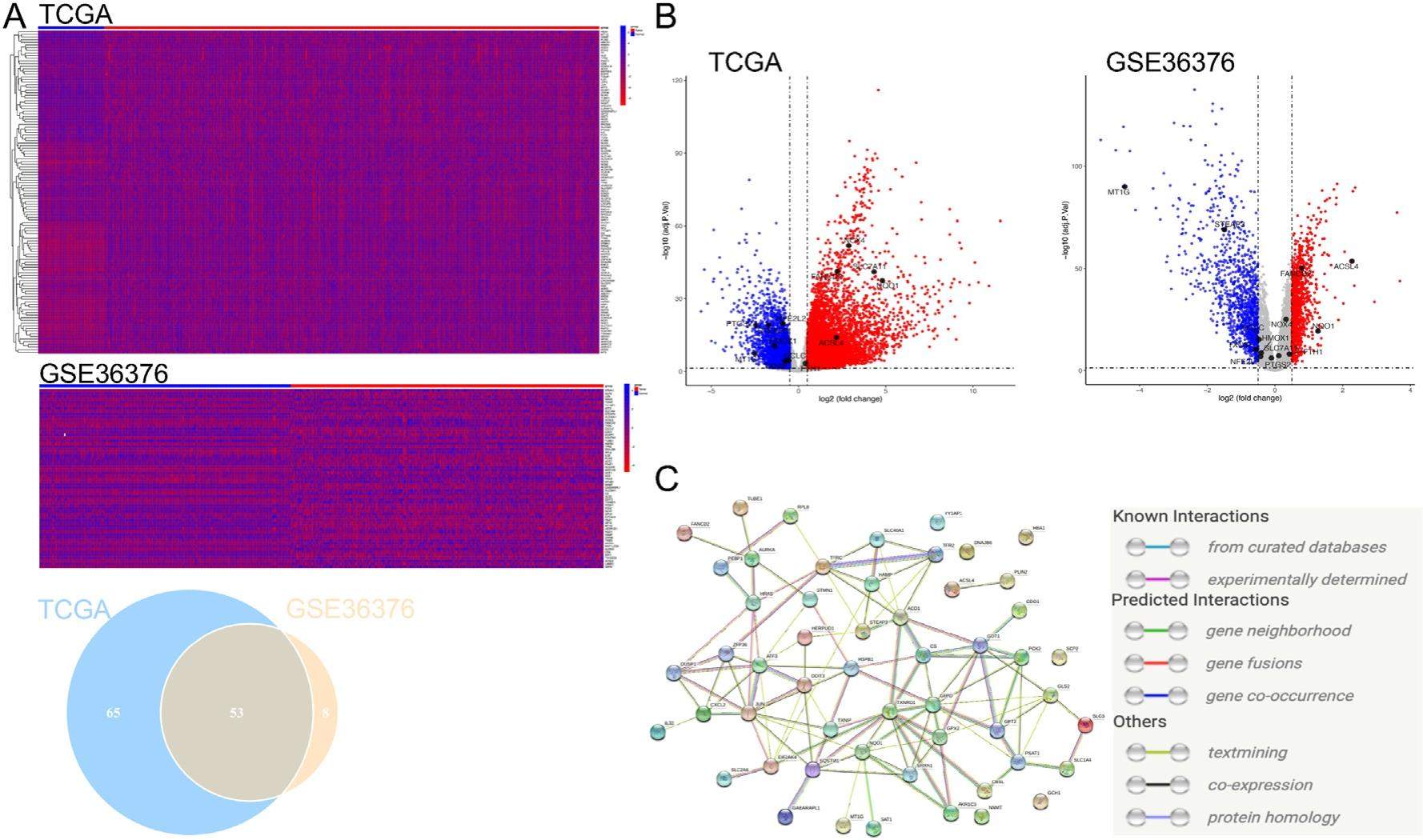
All-trans retinoic acid inhibits the malignant behaviors of hepatocarcinoma cells by regulating ferroptosis


All-trans retinoic acid (ATRA) can reverse the malignant behaviors of hepatocellular carcinoma (HCC) cells, thereby exerting anti-HCC effect; however, the underlying mechanism is yet to be understood. This study aimed to demonstrate that ATRA is vital to ferroptosis in HCC. Ferroptosis-related genes exhibit different expression in patients with HCC compared to that in healthy individuals. A total of 20 amino acid products were detected in HepG2 cells, the expression level of 5 was decreased after ATRA treatment. ATRA improved the levels of lipid ROS, MDA, and NAPD+/NADPH, and reduced the mt-DNA copy number and changed the structure of mitochondria, in HepG2 and Hep3B cells. We found the expression of genes positively correlated with ferroptosis to increase and those negatively correlated to decrease with ATRA treatment. Inhibition of ferroptosis by Ferrostatin-1 reversed ATRA-inhibited proliferation of HCC cells, along with cell migration and invasion. GSH synthesis was blocked by ATRA, accompanied by decreased cystine content and increased glutamate content, and downregulation of the expression of GSH synthesis-related genes. Our findings suggested that ATRA inhibited the malignancy of HCC cells by improving ferroptosis, and that inhibition of GSH synthesis contributed to ATRA-induced ferroptosis.
